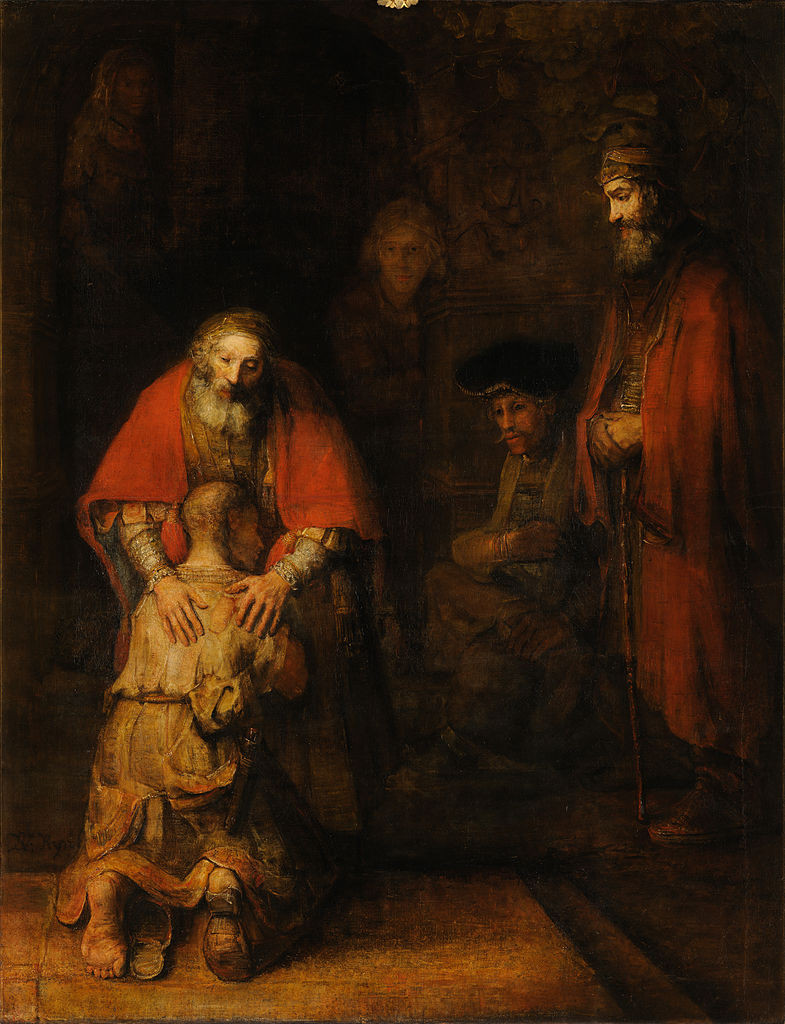March 2, 2016: Day 59 – Luke 15
March 2, 2016The entire chapter of Luke 15 is dedicated to finding the one who was lost. There are three separate stories and all of them are set up by the comment that a disgruntled Pharisee makes when he said: “This fellow welcomes sinners and eats with them.” The assumption was that Jesus should have nothing to do with them because they are obvious sinners. The statement assumes that Jesus should be spending time with people who are not sinners, people who are righteous, church people, people like us. That’s not Jesus’ take on the matter.
The parable of the lost sheep is a classic and many have attempted to portray the scene as one where the other 99 really weren’t in danger because it was fairly common for the shepherd to leave the dogs in charge for a bit of time. The point of this parable, as is the point of the others, is that Jesus will celebrate over the one sinner who repents because the other 99 do not need to have his presence. Everyone needs to repent,of course, but the sinner with whom Jesus was told he should not be hanging turns out to be the one that Jesus is willing to bend over backwards to save. He is called to the lost sheep, not the found sheep. How does that relate to us in an institutionalized setting such as the church? Who are the 99 righteous if not the members of the church. Who is the lost sheep if not the ones who want to have nothing to do with the church, who are on the periphery, who need to be found by wandering outside of the church to see if they are in the area? Jesus calls us out of our pews and into the streets.
The lost coin is almost the identical lesson. The one sinner who repents is cause for much joy. The sinner is not going to be where we expect them to be. They are not going to be joining us on Sunday morning. They might be here for a wedding or maybe even a funeral. I have come across so many people in this community that have told me that at one time they used to come to church at First Presbyterian. For many of them it was during their childhood and since then they didn’t see the utility of attending church and so have turned their back completely on the church. Notice that I am not saying that they have turned their back on God, although some have, but certainly have on the church. They will make an appearance at a wedding or a funeral. This is a lost coin. This is someone the church ought to spend the time and the effort to pour ourselves into. One of the missions of the membership needs to be to find the lost sheep and rejoice over the found coins.
We know the parable of the prodigal son.
I’ll never forget wandering around the Hermitage in St. Petersburg, Russia and turning to go down a stairwell when this painting by Rembrandt caught my eye. It is the father welcoming back home the prodigal son. There is such a tenderness in the touch of the father and an obvious abject confession on the part of the son in his tattered clothes and his single shoe that is curled up. My favorite part of the parable is found in vs. 20 where we read that while the returning son “was still far off, his father saw him.” The image I have is that of the father every morning with his coffee cup in hand staring out over at the horizon wondering, hoping that this would be the day that his son returns.
The image of our Father in heaven staring out over the horizon waiting and hoping for us to return to his side is one that resonates with me. There are times in our lives when we are still far away from the Father, but he is still waiting and hoping that we will return. When we do, we will be welcomed back with open arms. The older brother, who would that be? The entire chapter creates a dichotomy between those who are righteous, or those who have followed the will of God, and the sinners, those who have chosen to turn their backs on God in certain times in their lives. So if the younger son is the sinner who has been found (vs.32) then the older son must be the righteous, or to apply it to today’s terms, those who are members of the church. Are we indignant when the sinners are welcomed back into the church even though they haven’t done anything to deserve that welcome? Are we filled with joy when we see programs changing and time and material resources being spent on those who have not had anything to do with the church, and maybe never will, while they could be spent for the good of the members? It is a tough question. We think logically that what we have should be focused on us. Jesus says no, what we have is for the purpose of bringing the lost to Jesus.
